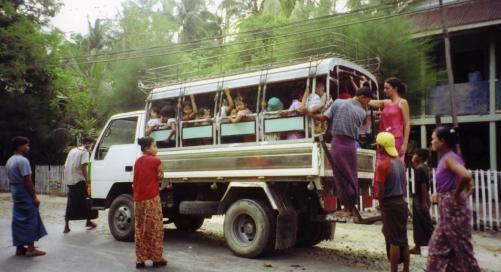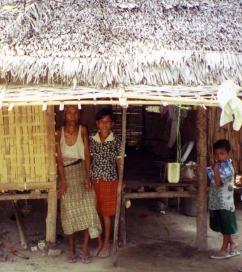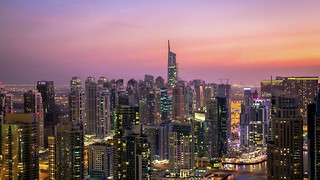Burma before the cameras
The brutal suppression of peaceful protesters in Burma in the past weeks has shocked the world. But the actions of the military-led junta came as no surprise to , who lived and worked in the country during 2005, and witnessed the government’s growing heavy-handedness
The Burmese government’s bloody suppression of religious protesters has made international headlines this month.
But the shocking events on our television screens are only the tip of a vast iceberg of repression which has been steadily intensifying for years, as I saw when for two months in 2005 I was fortunate enough to work and travel in the country. 
I mean "fortunate" quite literally, as a coup at the top of the junta the previous December had revoked almost all foreign teaching visas and increased restrictions on movement within the country.
 Yet despite the regime under which they live, most of the people I encountered felt that their ability to speak English gave them some protection from military informants, and were surprisingly willing to discuss their political views. Two years ago the overwhelming feeling in the country was one of resigned passivity - whilst they did not support the military they felt there was little they could do to oppose them. This seems far removed from the scenes of protest flooding onto our screens at the moment.
Yet despite the regime under which they live, most of the people I encountered felt that their ability to speak English gave them some protection from military informants, and were surprisingly willing to discuss their political views. Two years ago the overwhelming feeling in the country was one of resigned passivity - whilst they did not support the military they felt there was little they could do to oppose them. This seems far removed from the scenes of protest flooding onto our screens at the moment.
Most adults lived through the violent crushing of the 1988 protests, when over 3,000 people were killed and thousands more imprisoned or forced to flee the country. Not a single family I encountered escaped entirely unscathed.
Since then the level of military control over the nation has only increased, and the shocking repression in our newspapers this week is not so much a last resort as a way of life. Throughout long night journeys, the military stop buses, get everyone out and make them wait, crouching by the roadside for hours in the dark, simply to intimidate. Soldiers who spoke no English would open my passport backwards and upside-down, compensating for an inability to understand what it said by fingering their rifles.
The gentle majority of these people are naturally passive. Theravada Buddhism, practised by over 80% of the population, is a non-violent religion, focusing on the individual meditative practice. Although in the last couple of days commentary on the ‘Saffron Revolution’ has emphasised the historical role of monks as political activists, after their participation in the 1988 uprisings, a new ‘Sangha Union’ was set up under the control of the Ministry for Religious and Home Affairs, requiring all monks to take an oath not to oppose the government or the military Tatmadaw.
Their current bravery is thus all the more astonishing, but we are mistaken if we view it as simply an example of hopeful heroism. In many ways the present unrest is a sign of total desperation.
In the area where I worked, those who could speak English were able to increase their income by as much as 100% by finding employment in one of three small hotels. Those who could not scraped a living attempting to sell sea shells strung on fishing wire to a barely existent tourist population. Local children would frequently skip school to scavenge for dead fish with which to feed their families.
In Britain, where we are conditioned to protests and people raising their voices in opposition, it is easy to underestimate just how incredible the events unfolding in Burma are. None of the protesters have the means to arm themselves in self-defence, and it is entirely unclear who is leading the marches or how they have been organised. Yet every day more and more people have volunteered, risking their lives even though they expect little to change. As one young woman said:
“I don’t think we can defeat the government; I can’t imagine what will happen.”
Leading nations have threatened to impose new sanctions on the Burmese military if they use force to end the protesting. This is not going far enough. A Burmese Freedom and Democracy Act signed by President Bush on July 28, 2004 banned all Burmese imports, ended US investment there and froze all assets belonging to the Junta. It has had a very limited effect. Equally, if the international community truly believes that harsher sanctions will have an impact, why has it waited until now to impose them? In a controversial decision in 1997, the Association of South-East Asian Nations elected to admit Burma, arguing that membership would fuel positive change through “constructive engagement.” This January, however, ten years later, during which time other Asian nations have continued to sell arms to the Burmese government, a UN draft resolution proposed by the United States and Britain which called for democratic reform in Burma was rejected by Russia and China. They argued that Burmese domestic unrest was an internal matter. The cynical truth is that the Burmese energy resources - oil and off-shore gas fields - make the stability of the status quo more valuable to its Asian neighbours. Even though the UN envoy, Ibrahim Gambari, has now arrived in Burma to hold talks with the Junta, his presence there in November 2006 resulted only in Aung San Suu Kyi being allowed to receive more medical visits.
The NLD do not encourage tourism to Burma on the basis that it gives money to the oppressive regime. This is true. If you enter the country your visa costs and your airport taxes will go to government organisations. Nevertheless, I disagree with the NLD stance, particularly given that the UN, hampered by China and Russia, has failed to be ‘united’ in condemnation the of the Junta and international awareness is already wanting as the protests have been brought to a halt. Now it is all the more important to remain interested in Burma. Yet on the day when unarmed monks and civilians were mercilessly gunned down in the streets of Yangon, the story came bottom in a list of the BBC’s most read stories, preceded by “Shock for visitors to fake beach” and “In pictures: an ice cream adventure”.
Deprived of virtually all international information, it is remarkable how many Burmese are aware of the fictitious nature of the barrage of government propaganda, but it still difficult for them to know what to believe. I was approached by several people wanting to know if it were true that US troops were poised on the borders for invasion, as the state newspaper The New Light of Myanmar frequently claims. They should be so lucky, I couldn’t bear to tell them that most people don’t even know where Burma is and even fewer seem to care.
From the retired teacher who quizzed me for more English idioms he could learn, to the artist with his cherished copy of Orwell’s 'Burmese Days', the teenage monk in Pyay who had taught himself to speak English by listening to the BBC and watching the movement of his lips in the mirror when they formed the right sounds, the hopes and dreams of the Burmese thrive on any exchange of outside information. It is a hideous paradox that the reports of imminent foreign intervention used by the military to frighten the people also foster a false sense of hope that the world actually gives a damn.
In 'Freedom From Fear', Aung San Suu Kyi states that, “The quest for democracy in Burma is the struggle of a people to live whole, meaningful lives as free and equal members of the world community.” It is the quest for everything from the right to protest without being shot at, to the basic right to ride a bicycle past a police building without being forced to get off and walk.
Above all this it is a quest for the right not to be ignored by a world they are so desperate to be a part of.
Gianna Vaughan
 Features / The community Cambridge accommodation creates (and doesn’t)9 August 2025
Features / The community Cambridge accommodation creates (and doesn’t)9 August 2025 News / Trinity sells O2 Arena lease for £90m12 August 2025
News / Trinity sells O2 Arena lease for £90m12 August 2025 Lifestyle / An ode to college accommodation11 August 2025
Lifestyle / An ode to college accommodation11 August 2025 Sport / ‘A full-time job with overtime’: should disparities change the way we approach Bumps?6 August 2025
Sport / ‘A full-time job with overtime’: should disparities change the way we approach Bumps?6 August 2025 Features / Incoming freshers and their hopes, fears and expectations for Cambridge 12 August 2025
Features / Incoming freshers and their hopes, fears and expectations for Cambridge 12 August 2025









